by Rachel Shinto
UCEAP alumna and Returned Peace Corps Volunteer
This is my insight on how study abroad is the perfect preparation for a Peace Corps experience. My study abroad experience in Argentina on the Intensive Spanish Language program was the beginning of a much longer journey. After graduation, I spent two years volunteering with the Peace Corps in Panama.
Adapting to any new country can be an exciting, stressful and sometimes terrifying experience. I learned to overcome those challenges while studying abroad.
1. You know how to live with a host family
During your first months with the Peace Corps, in pre-service training, you’re required to live with a host family. If you choose to live with a host family on your study abroad program, you will be ready.
The first real relationships I made with Argentines began with my wonderful host family in Buenos Aires. They taught me all the local slang and gave me tips on how to blend in. I had dinner with them every night. Sometimes, they would help me understand my Spanish homework. Similarly, in the Peace Corps, my host mom in Panama is a dear friend to this day. She helped me practice Spanish and learn the ins and outs of Panamanian culture.
When you first start your study abroad program, you will find that social interactions can be, at times, extremely awkward. Those moments are opportunities to learn and to build relationships with the people of your host country.
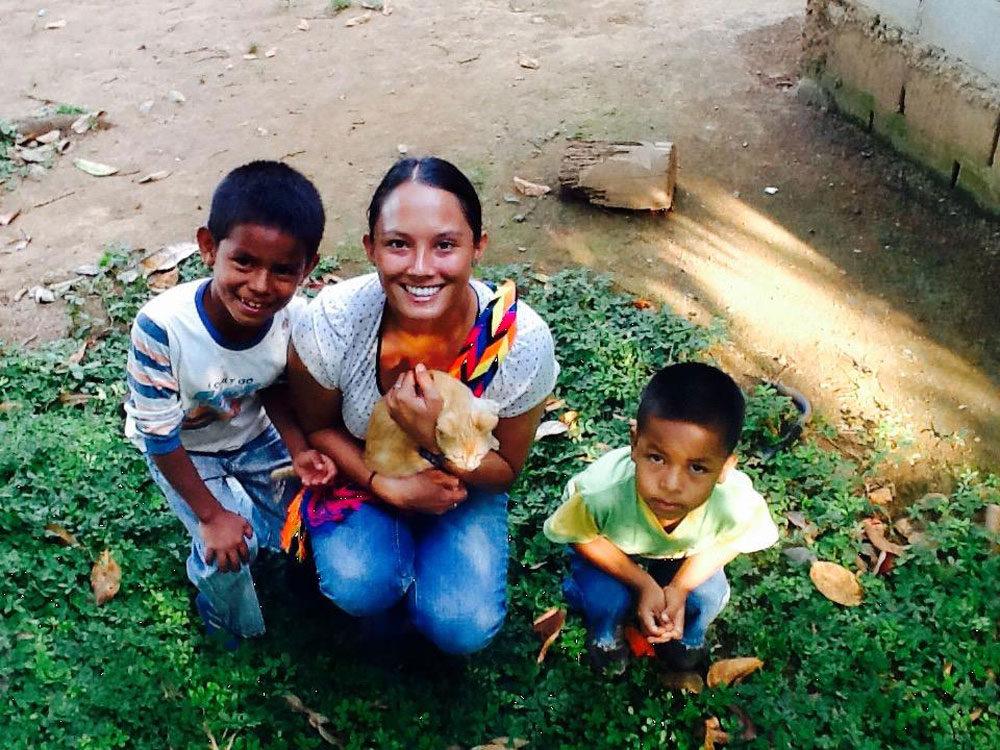
2. You’re a pro at language acquisition
Learning a foreign language takes an immense amount of work and hours of practice. Yet, there’s no better or easier way to learn a language than out of necessity. When I first arrived in Argentina, I was nervous ordering food or asking for the price of something. I was scared of how terrible my accent sounded, and I cringed when Argentines made funny faces at me. It got better with time. One Peace Corps friend told me the best tip: “To learn a new language, you have to be okay with sounding like an idiot.”
Adjusting to the language in Panama on my Peace Corps adventure was a cakewalk after studying abroad. It gave me the confidence and tools I needed to quickly master the local language in my Peace Corps location.
3. You learn to try new and often delicious foods
Have you ever heard of yucca, ñame, otoe or breadfruit? Neither had I before living in Panama. During your Peace Corps service, you will eat foods you’ve never heard of before. At times, you may have to eat food that you don’t particularly like. You may be in a remote location or there may be a lack of food options.
Studying abroad gives you a gentle introduction to trying new foods. In Panama, I learned to eat freshly caught iguana and armadillo when I wasn’t living off canned tuna and rice.

Breadfruit
4. You’re a master at doing laundry anywhere
Doing your laundry abroad is guaranteed to be a different experience. In Argentina, I hauled my laundry to the nearest Chinese laundromat two blocks away. In Panama, I did my laundry by hand in a creek with a plastic bucket and powder laundry soap! At first, I liked being outdoors and soaking up nature while I did my laundry. After a while, I decided the Chinese laundromat method was much easier. Sure, my Panama laundry experience was extreme, but studying abroad was definitely my introduction to laundry mastery.
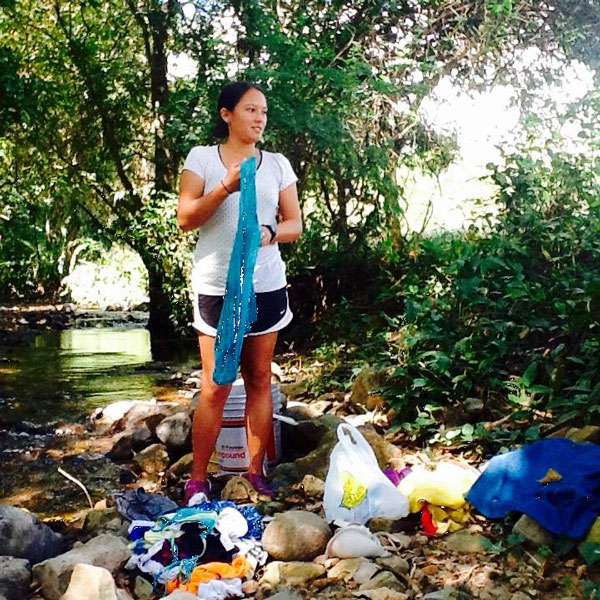
5. You gleefully embrace cultural immersion
Cultural immersion can be a slow and confusing process when you’re studying abroad, but you will always be the ‘weird American’ at your Peace Corps site. This feeling varies between celebrity and freak show. It never failed to surprise me when children stared and called me ‘gringa’—even after a year of living in their community. Studying abroad allows you to experience what it’s like to represent the United States in a foreign country on a smaller, more controlled scale.
TIP: While studying abroad, spend as much time as you can with people who are not from your home country. It’s well worth the time, not only for your language skills but also to have friends all over the world.
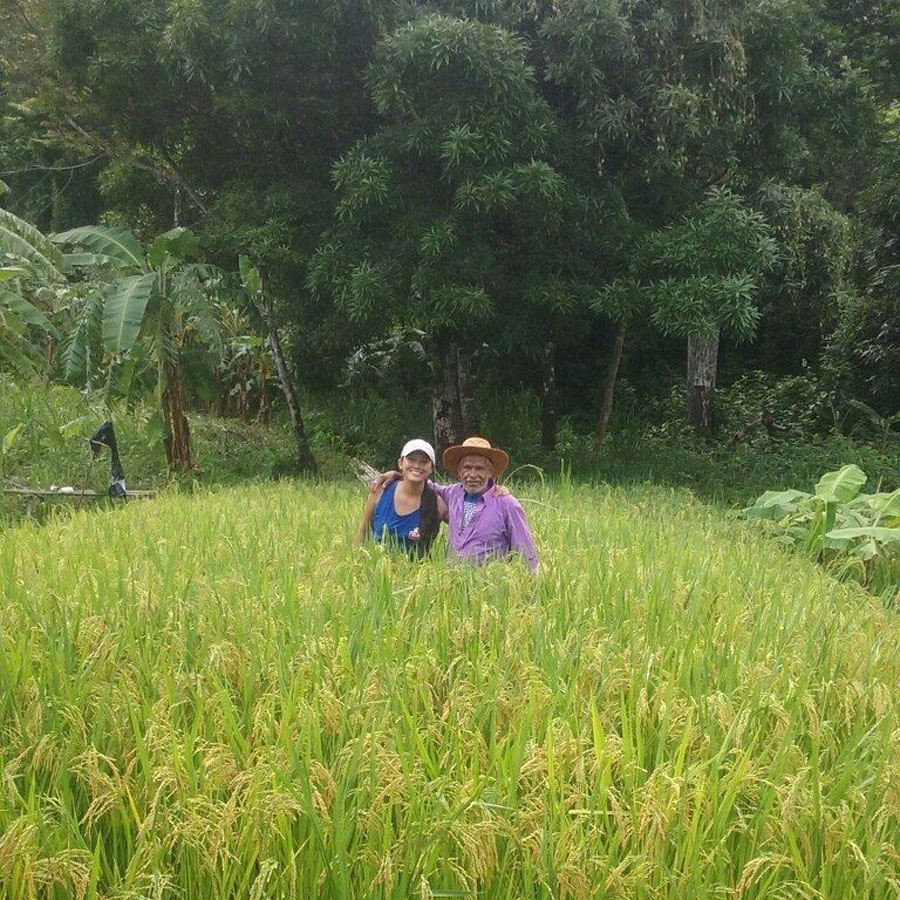
6. You adapt easily to strange situations
Adaptability is the single most important trait every Peace Corps volunteer must have to enjoy their experience. While studying abroad, I encountered confusing situations: Sometimes plans did not go as intended, transportation got delayed or the weather was strange. I learned to roll with it, find a new plan or come up with a workaround. All of the experiences I had while studying abroad prepared me to be flexible and adaptable as a Peace Corps volunteer.
7. You’re a paperwork professional
Preparing to study abroad required seemingly endless paperwork. I had to keep an eye on deadlines and coordinate between several entities. Studying abroad will definitely help you with the planning, coordination and paperwork required to become a Peace Corps volunteer.

8. You can get by on a budget
Being a poor college student is similar to living as a Peace Corps volunteer. While studying abroad, I learned to live on a budget, plan trips ahead of time and save a bit of money on the side. I had to watch my spending closely, but it was a good lesson that prepared me for the Peace Corps. As fun as it is to take a spontaneous trip, you quickly learn that having money for toilet paper, laundry soap and a pillow is worth more than a few extra nights at a surf hostel.
9. You live in the moment!
One of the things you learn while studying abroad is to live in the moment and make the most out of every opportunity. After all, you never know when you’ll get the chance to visit your host country again. The same is true when you volunteer for the Peace Corps. Every day is a new adventure; around every corner a new experience.
One afternoon in Panama, I went hiking with a friend on what was supposed to be a five-hour hike to their home community. (It turned out to be eleven.) I was exhausted, dripping with sweat and my feet were soaked from crossing the river about a dozen times. When we reached the top, I took a deep breath and was astonished at the lush green landscape. It was such a feeling of exhilaration!
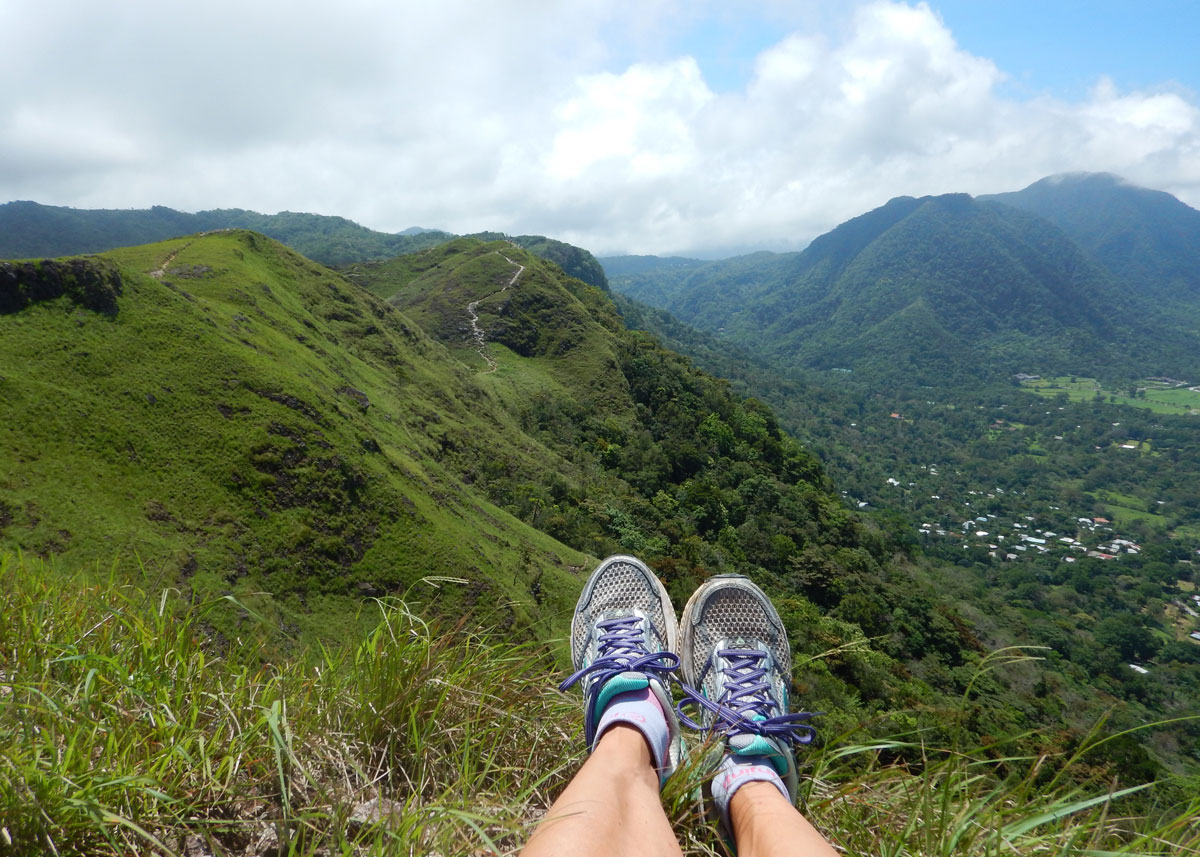
Final Advice
Upon completion of your Peace Corps service, you can be granted a special perk called noncompetitive eligibility. It’s good for 12 months, and federal employers prioritize you for hiring as long as you meet the minimum job requirements. I am happy to say that I used my noncompetitive eligibility! I’m now an Immigration Services Officer with the United States Citizenship and Immigration Services in San Francisco.
TIP: Apply for the UCEAP Peace Corps Prep certificate program when you submit your application to study abroad.

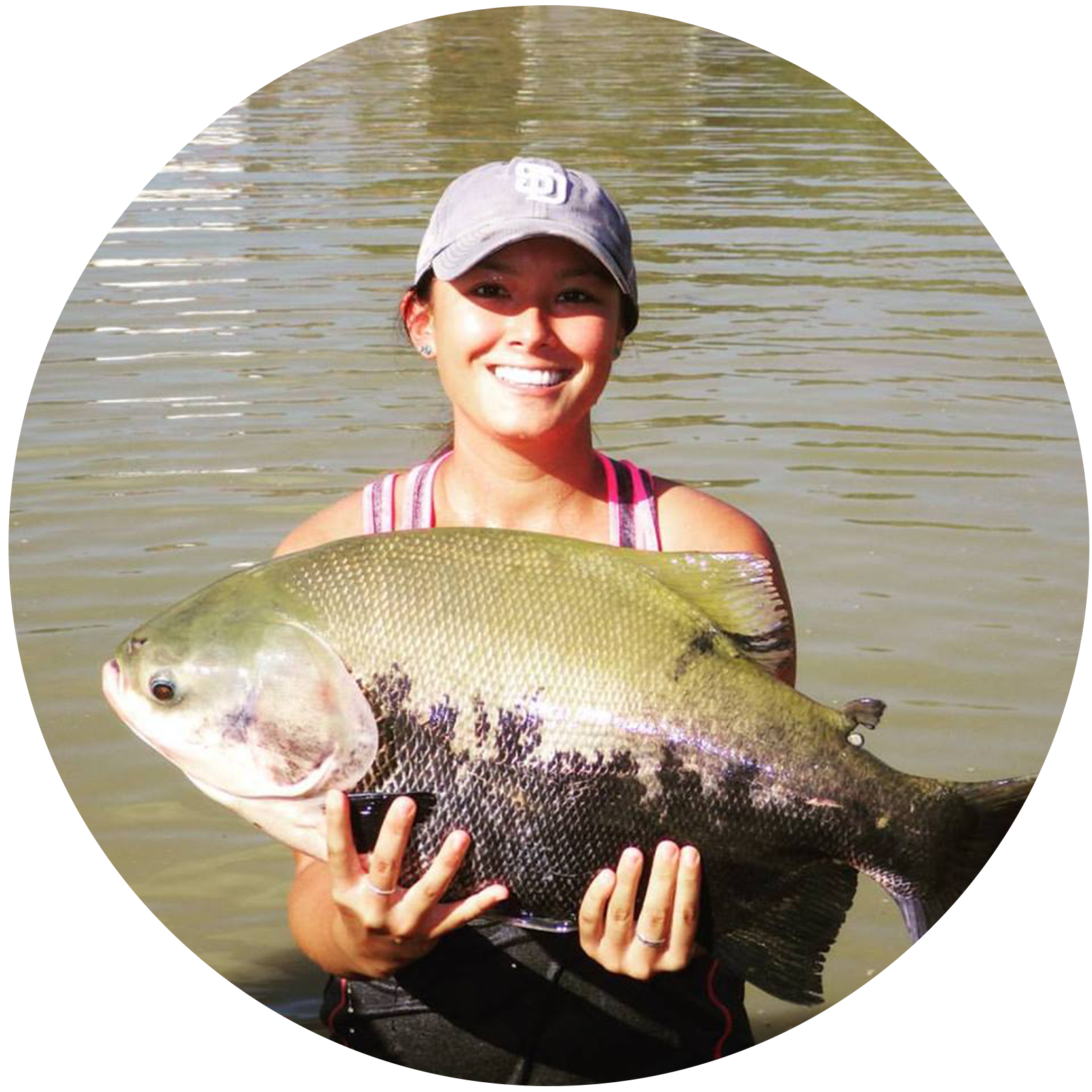
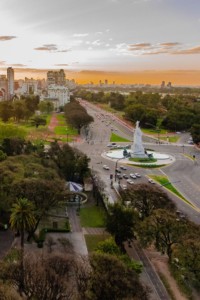
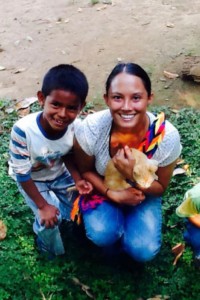

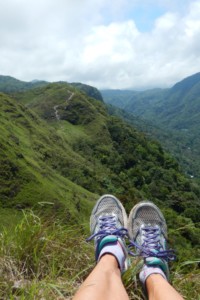
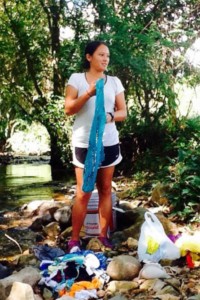

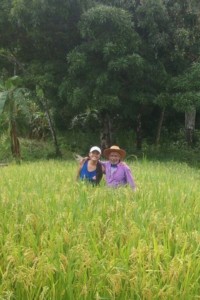
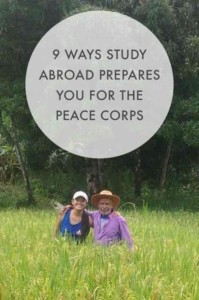
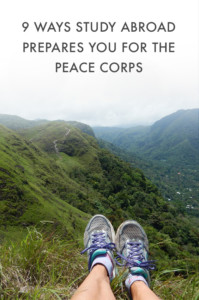
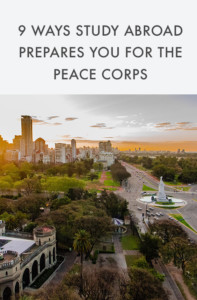
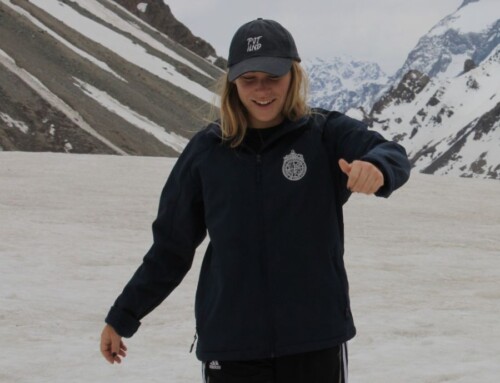


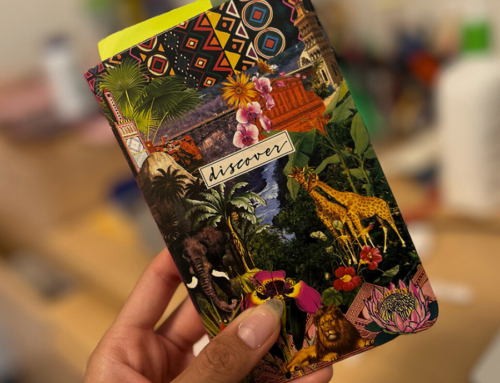
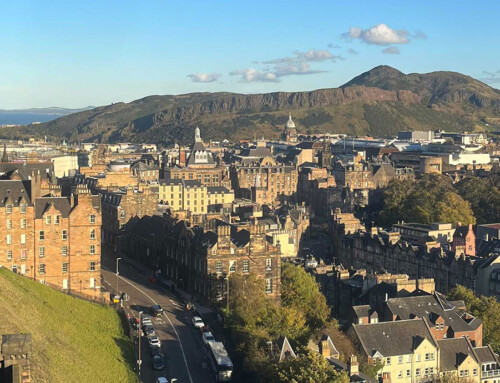
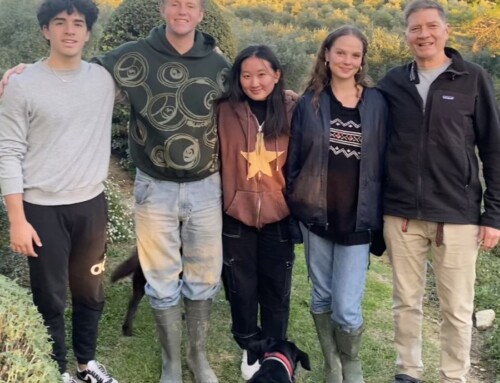
Leave A Comment